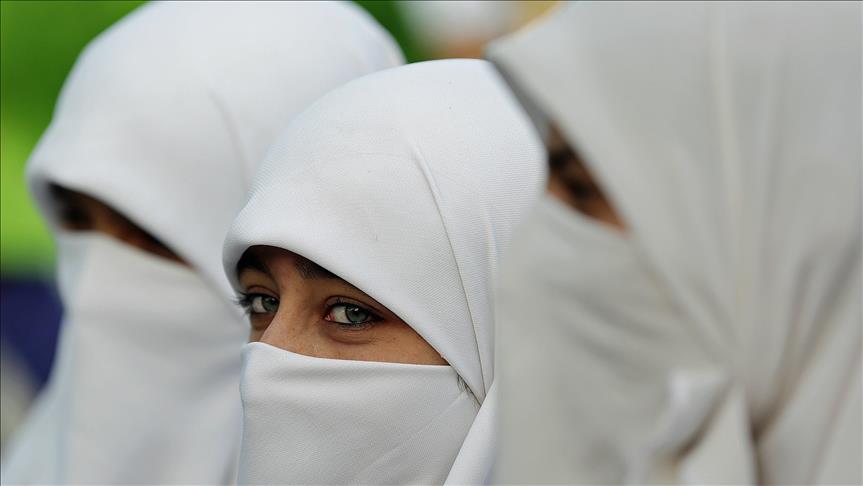Women worldwide embrace the hijab
Anadolu Agency follows World Hijab Day events in Nigeria, Bosnia

Lagos
By Rafiu Ajakaye and Talha Ozturk
LAGOS, Nigeria/BELGRADE, Serbia
Muslims and non-Muslims gathered in cities around the world on Monday to mark World Hijab Day.
Initiated in 2013 to promote religious tolerance, the event was followed in Bosnia and Nigeria -- two very different parts of the Islamic world -- by Anadolu Agency.
In Bosnia, marches in Tuzla, Mostar, Gorazde and further afield focused on a decision to ban the hijab, or headscarf, in law courts, while in cities and towns across Nigeria, where covered women have come under pressure following militant group Boko Haram’s use headscarf-wearing suicide bombers, protesters called for tolerance and understanding.
Peaceful rallies staged in cities such as Lagos, Nigeria’s commercial capital, saw demonstrators call on public institutions and companies to respect their freedom of religion.
Condemning recently publicized cases of harassment against Muslim women under the “guise of war against terrorism or Boko Haram”, placard-carrying crowds called for the reversal of a ban on the veil in Lagos’ public schools.
“These ugly incidents vis-a-vis continuous molestation and harassment of Muslim females gives credence to the importance of enlightenment about the hijab, which a day like this is dedicated to,” Hajia Hafsah Badru, a Muslim student leader, told a rally.
She said the day’s themes of beauty, confidence and empowerment countered claims that women were forced into wearing the hijab.
“It is not a symbol of oppression, segregation,” she said. “We choose to wear it, we love it. It makes us beautiful, confident and empowered.”
Al-Mu'minaat, an umbrella group for Muslim women, called on government institutions and private sectors to discourage discrimination against covered women.
The group’s president, Hajia Nihmatullah Abdul Lateef, said: “We wish to remind the Nigerian security institutions that Boko Haram is the enemy and not Muslim hijabis.”
She added: “Several thousand hijabis have been unfortunate victims of Boko Haram attacks, either as deceased victims or living but shattered IDPs, and it would amount to double jeopardy if Nigerian security authorities harass and disrobe chaste Muslim women, who they are supposed to be protecting from our common enemy, Boko Haram.”
Thousands of kilometers (miles) to the northeast, crowds in Bosnia protested against the High Judicial and Prosecutorial Council’s ban, which came into force last month, on wearing the hijab, classifying it as a religious symbol.
“The headscarf is my right and my choice,” chanted women in Tuzla, where Amina Karic said the ban hijab was “disappointing and discriminatory”.
“I am afraid that the banning of hijab will spread to other institutions as well,” she said. “I am currently involved in teacher training. I am worried that I will not find a job when I graduate.”
Speaking in Mostar, lawmaker Selma Jakupovic said she supported a ban on religious symbols for court staff but denied the headscarf was such. “This is a freedom of speech,” she said.
Dzenita Kaliman, a lawyer who wears a headscarf, said the hijab decision was a violation of human rights and restricted religious freedom.
“This decision is a complete disappointment because Bosnia is considered a multi-ethnic [nation] where everyone is equal,” she said, adding she feared losing her job.
“Think about it, who gives work to a lawyer who cannot enter judicial institutions?” Kaliman asked.
Anadolu Agency website contains only a portion of the news stories offered to subscribers in the AA News Broadcasting System (HAS), and in summarized form. Please contact us for subscription options.


